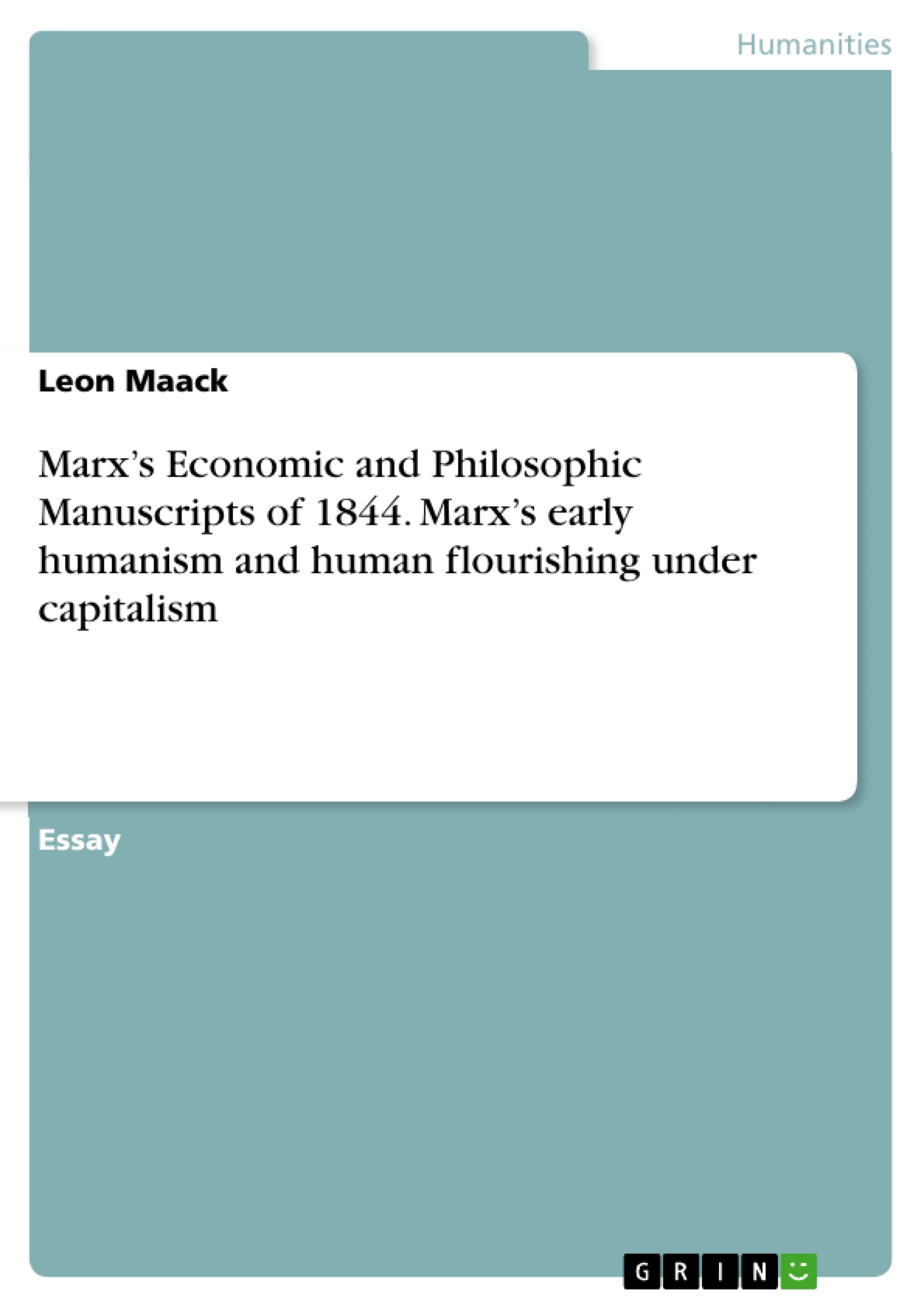This essay aims to explore the chapters 'Estranged Labor' and 'Private Property and Communism' in Karl Marx’s 'Economic & Philosophic Manuscripts of 1844' and elaborates on how they are still relevant today.
In his Economic & Philosophic Manuscripts of 1844, Karl Marx proposes a potent and extensive philosophical analysis of the human being and its situation under a capitalist system. In doing so, he perceives history as a process of man’s alienation
and its necessary abolition; man being history’s subject and labor being man’s essence. Marx, however, is no advocate of the concept of an anthropological humanism; for him, human beings have no abstract essence but are instead constituted in an historically grown environment: „just as society itself produces man as man, so is society produced by him.“ Society’s and man’s relationship is reciprocal: not only is society produced by human beings, Marx also saw that this man-made society in turn has great effect on the human beings which are born into and inhabit it. He continues to claim that the „human aspect of nature exists only for social man; for only then does nature exist for him as a bond with man – as his existence for the other and the other’s existence for him – and as the life-element of human reality. […] society is the complete unity of man with nature – the true resurrection of nature – the consistent naturalism of man and the consistent humanism of nature.“ [...]
Table of Contents
- Marx in 1844 and his Humanistic Influences
- Marx on Estranged Labor
- Marx on Private Property and Communism
- The Issue of Revolution
- Why the Manuscripts matter today
Objectives and Key Themes
This essay offers a comprehensive analysis of Karl Marx's "Economic & Philosophic Manuscripts of 1844," exploring his early humanism and the critique of alienation under capitalism. The essay examines Marx's ideas on estranged labor and private property, focusing on the concept of human flourishing and the potential for liberation through communism.
- The concept of alienation and its manifestation under capitalism
- The role of labor in shaping human essence and social relationships
- The critique of private property and its impact on human flourishing
- The potential of communism as a solution to alienation and social inequality
- The historical and philosophical influences on Marx's thought
Chapter Summaries
Marx in 1844 and his Humanistic Influences
This chapter introduces Karl Marx's "Economic & Philosophic Manuscripts of 1844" as a key text in understanding his early humanism and critique of capitalism. It explores Marx's concept of human essence as historically constituted, emphasizing the reciprocal relationship between society and individuals. The chapter examines the influence of German Idealism, particularly Hegel and Feuerbach, on Marx's ideas on alienation and human flourishing.
Marx on Estranged Labor
This chapter delves into Marx's analysis of estranged labor under capitalism, arguing that it results in the alienation of workers from their product, their activity, their species-being, and other human beings. Marx's critique is presented as a scientific analysis of the capitalist system, highlighting the inherent contradictions and exploitative nature of this mode of production. The chapter further explores the distinction between religious and economic estrangement, emphasizing the material basis of alienation within a capitalist context.
Keywords
This essay examines key themes and concepts central to Karl Marx's "Economic & Philosophic Manuscripts of 1844," including alienation, estranged labor, private property, communism, human essence, historical materialism, and the critique of capitalism.
Frequently Asked Questions
What is Marx's concept of 'Estranged Labor'?
Marx argues that under capitalism, labor is alienated in four ways: from the product, from the act of production, from the worker's own 'species-being,' and from other human beings.
How does Marx view the relationship between man and society?
The relationship is reciprocal: society produces man, and man in turn produces society. There is no abstract human essence; it is historically and socially constituted.
What is the role of Private Property in Marx's early work?
Marx sees private property as both the result and the means of alienated labor. Its abolition is necessary for the true realization of humanism and the return of man to himself.
Why are the 1844 Manuscripts still relevant today?
They provide a foundational critique of how economic systems impact human flourishing and mental well-being, themes that remain central in modern discussions about work and social justice.
How did Hegel and Feuerbach influence Marx?
Marx adapted Hegel's dialectics and Feuerbach's materialism to create his own historical materialism, shifting the focus from religious alienation to economic and social alienation.
- Citation du texte
- Leon Maack (Auteur), 2020, Marx’s Economic and Philosophic Manuscripts of 1844. Marx’s early humanism and human flourishing under capitalism, Munich, GRIN Verlag, https://www.grin.com/document/1190978



